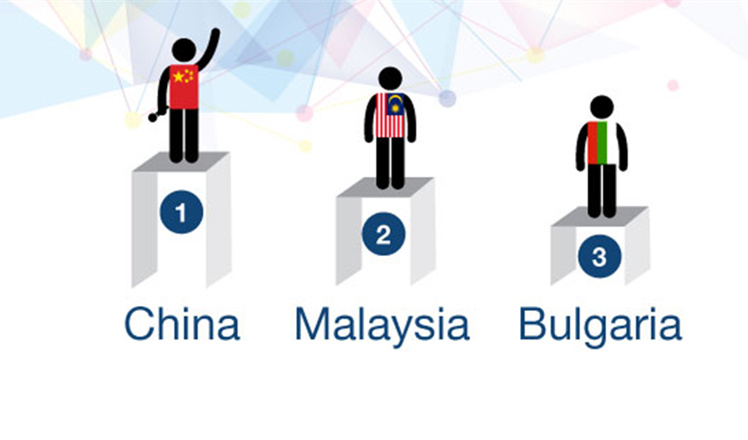Data reviews are the system's backbone
Updated: 2016-08-18 07:58
By Zheng Jinran(China Daily)
|
||||||||
Zhao Chenying is an inspector for the Beijing Municipal Environmental Monitoring Team. It's a demanding job, because the companies he deals with cover a wide range of sectors, from restaurants to chemical companies to power plants, which requires Zhao to understand technicalities in a number of fields.
On July 21, Zhao reviewed the validity of emissions data provided by the Huadian Thermal Power Plant in Beijing, a branch of China Huadian Corp.
He inspected the entire process, starting by collecting and measuring pollutants in the 100-meter-high chimney, where he measured the emissions data with portable equipment before comparing the results with those supplied by the company.
Similar crosschecks are applied to follow-up processes, including checking data readings from both the host machines and the boxes that upload the data to the municipal platform on pollutant emissions.
"If the two groups show large discrepancies in any of the processes, the company will be required to review and fix the facilities to guarantee data validity," Zhao said.
Crosschecking is an uncomfortable job because most of the facilities installed near pollutant-discharging outlets are situated in high, wet or noisy positions, such as the host machine installed near the thermal plant's steam boiler, where the temperature was around 50 C.
In addition to quarterly reviews of data validity, Zhao and his colleagues are responsible for monthly inspections at businesses known to be large emitters, such as Huadian, while other companies are subject to random monitoring.
There are about 500 inspectors for the capital's downtown and suburban districts, but there are more than 10,000 pollutant-discharging companies. "It's impossible to inspect them all frequently," said Li Bin, Zhang's colleague.
Beijing's emissions-monitoring platform, which became operational in 2012, covers 172 major companies with high levels of emissions, supplementing the work of field inspectors, Li said.
The platform allows inspectors immediate access to hourly emissions data, he added.
In the past two years, only 12 companies have been exposed as having excessive levels of emissions or failing to install monitoring facilities in accordance with their own schedules.
"The companies have gradually realized the importance of auto-monitoring facilities, which provide a good way of proving their performance in reducing pollution," Li said, adding that strict controls mean companies must become environmentally friendly if they want to continue operating in the capital.
In the first months of operation, when an alert was sounded the inspectors had to call companies to discover the reason, but now, companies voluntarily notify the inspectors of the causes of abnormal readings and the measures they will take to rectify the problem, Li said.
- Malaysian authorities say ship carrying diesel hijacked
- Army commander: THAAD would 'easily affect' China-US ties
- Twin panda cubs confirmed born in Vienna zoo
- Four killed in boat collision in Greece
- Premier Li to receive Aung San Suu Kyi
- S Korean president names 3 new ministers for partial reshuffle

 China edges Brazil in volleyball quarterfinals
China edges Brazil in volleyball quarterfinals
 China's women's table tennis team sweeps gold
China's women's table tennis team sweeps gold
 Artists build sand sculptures to greet upcoming G20
Artists build sand sculptures to greet upcoming G20
 Top 10 biggest auto makers of 2015
Top 10 biggest auto makers of 2015
 British dad turns breakfast into work of art
British dad turns breakfast into work of art
 China inches up Global Innovation Index 2016
China inches up Global Innovation Index 2016
 Female soldiers on Frigate Jingzhou
Female soldiers on Frigate Jingzhou
 Synchronized swimming duo advances into final
Synchronized swimming duo advances into final
Most Viewed
Editor's Picks

|

|

|

|

|

|
Today's Top News
Trump outlines anti-terror plan, proposing extreme vetting for immigrants
Phelps puts spotlight on cupping
US launches airstrikes against IS targets in Libya's Sirte
Ministry slams US-Korean THAAD deployment
Two police officers shot at protest in Dallas
Abe's blame game reveals his policies failing to get results
Ending wildlife trafficking must be policy priority in Asia
Effects of supply-side reform take time to be seen
US Weekly

|

|







